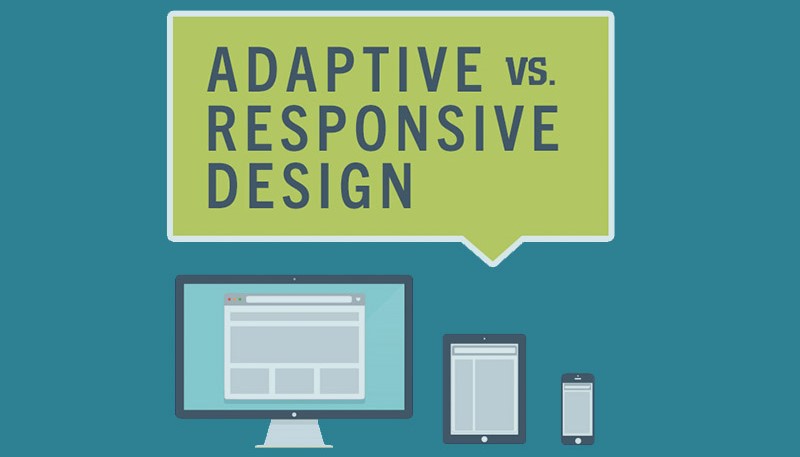Adaptive vs. Responsive web design

Google has always recommended a responsive web design and rolled out an important update earlier in April this year. This updates works to rank mobile-friendly sites higher based on web design. The secret behind the updated is, it doesn’t specify you use responsive designs, more that your site be accessible from mobile devices, with a good user experience and performance.
Keeping that in mind what are the options available to those who are looking at starting their own site? We have already spoken about responsive design in a previous series of post – which if you haven’t read, we suggest you do to find out more and you can find them here!
One of the biggest debates we have seen since the advent of mobile is between responsive and adaptive design or standalone mobile sites. Today we will focus on the first two.
What are the differences?
To put is simply, responsive web designs are ‘fluid’ as in they adapt to the size of your screen as the size of your browser changes, no matter what device you are viewing the website on. Adaptive design, on the other hand, uses ‘static’ layouts based on breakpoints that don’t respond once they’re initially loaded. Adaptive websites will detect the screen size and load a page that is suitable for the device. Generally there are 6 common screen widths.
The main difference other than being technical and in the definition is that, adaptive design requires you to develop six different designs, compared to responsive design which require a single design, but with more complex coding.
What is best to use?
To be honest responsive web design is in the majority of cases the safer option to go with when developing your website. It always functions well regardless of the screen size and more than that it improves loading times. It may require some extra effort but it is well worth it.
However, for some site adaptive might be a better option. This is mostly indicated for websites that are smaller and need preserve their websites or don’t have much information on them. An adaptive website is easier to make and the smaller size and audience will allow for the slower loading time to not be an issue.
Overall, we believe that responsive web design is a better investment when it comes to the end of the day and allow you to not miss out on all the potential mobile traffic to your site.
To find out more about web design, or if you would like to add any comments to this post, please fill in the form below:
[contact-form-7 id=”400″ title=”The contact form”]



